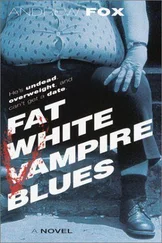Hayden walked to the whiteboard and wrote down the details. “Put him down as a person of interest. Anyone else?”
“Geoffrey Willard,” Meira announced. “Released three weeks ago from Long Bay. Did twenty years for the rape and stabbing murder of a fourteen-year-old girl. He’s 1.7 meters, weighs about 80 kilograms.”
“He did a runner a few nights ago when a pack of locals found out where he lived,” Hayden said. “We want him under surveillance when we find him.”
“Haven’t the women described their attacker as taller and heavier than that?” Abbott ventured.
Quentin shifted in his seat. “Often people overestimate the size of their assailant. It’s understandable given they’ve been overpowered and don’t have the normal perspective.”
But eye-witnesses still swayed courts. Anya had been to one of Hayden’s talks in which a man in sports gear ran into the lecture theater, held a prop gun to Hayden’s head and took his wallet before fleeing. From the theater full of detectives, descriptions varied from a five-foot-tall white man to a six-foot-tall dark, swarthy-looking man of Middle Eastern appearance. An hour later, the supposed thief returned to the theater and took his place in the front row. No one recognized him in a suit. That proved a great lesson to Anya. Eye-witnesses were notoriously unreliable.
“But bear in mind,” Anya said, “that women being assaulted often notice tiny details about their attacker. They are close to them for a relatively long period of time. Their senses also seemed to be heightened, they notice smells, sounds, things that other victims don’t.”
“Exactly,” Hayden said. “That’s why I’d like to reinterview the two victims who’ve already made statements. The statements are in no way detailed enough.”
Meira seemed to take that personally, but it probably wasn’t intended that way. Hayden was a perfectionist and asked far more questions than any other investigator. It meant he also got more answers.
“Let’s talk about the profile,” he added, sitting down.
Quentin handed out some typed pages.
“From the statements, and especially his saying about hurt and love, this guy sounds like a classic power-reassurance rapist. He commits sexual assaults to assert power over victims, which reassures him of his masculinity. He often doesn’t do well socially and lacks confidence sexually, especially with women. Generally, he’ll use minimal force to subdue his victims, although this guy lashes out when he thinks he’s been seen. If he carries a knife, he doesn’t intend to use it. It’s more for the power and effect it has. He also uses surprise as a weapon.”
“Which is why he lurks around stations and car parks,” Meira said.
“Actually, no. I believe this man carefully chooses his victims. Often this kind of rapist stalks the women in advance. He knows their routine and pounces when the best opportunity arises.”
“If you rule out Gloria Havelock’s attackers, the rapes may still be opportunistic,” Meira argued. “The one in the car park and the Havelock girl coming home from the station. Even the woman putting out her garbage could have been bad timing on her part.”
“Not necessarily. I think you have to consider the fact that this man knew the victims’ movements in advance.”
“What about the saying he comes out with?” Hayden seemed even more interested than the others.
“That’s quite predictable,” answered Quentin. “What we call pseudo-unselfish behavior. He thinks that if he shows some kind of concern, he isn’t such a bad guy. He’s telling himself that he’s actually doing something good for these women. In the past he would have been called the ‘gentleman rapist.’”
“Don’t reckon that’s in the Queensberry Rules,” Abbott quipped.
“He’s a gentleman in the sense that he doesn’t go out of his way to humiliate and denigrate his victims.”
“Any more than raping them at knife-point does,” Meira responded.
Quentin didn’t react this time. “He also fantasizes that the woman is a willing participant and will try to act out his fantasies, especially if she doesn’t resist. Like the Havelock girl; he’ll spend a fair amount of time, even taking a break to go and eat a meal before assaulting her again. He’s playing the role of the partner.”
Hayden drew a timeline on the whiteboard. “How much time do we have before he attacks again?”
“Not long. This guy is all about ego and self-esteem. He needs to keep raping because his ego can’t handle not being boosted. I’d suggest monitoring his victims for a couple of weeks after the assaults, because he may like to have some sort of contact with them. Either bump into them in the shops, phone them, or watch them. He won’t stop until he’s arrested.”
“And that’s the good news?”
“Kind of. Bad news is that if his assaults don’t live up to the fantasies he’s built up, he could get frustrated. In that case, the violence in the attacks will escalate, particularly if someone resists. He could easily end up killing future victims.”
The room went quiet. A knock on the door interrupted the silence. A woman in plain clothes entered the room with a pile of handouts.
Hayden thanked her and handed out questionnaires that each victim needed to answer. The detectives groaned.
“Do you know how much time this is going to take? Couldn’t a psychologist do this instead?” Abbott complained. “We could be chasing up leads like the one the local boys pulled over.”
Hayden disagreed. “If he’s not our man, we’ll have wasted a lot of time. The more we know about the victims, the better. We need to put out a general press release. Anya, I’ll leave it to you to contact the mystery woman-Victim One. It’ll be less worrying coming from you, and it’ll give you a chance to interview your mystery victim.”
Anya looked at the list. The woman who had brought the questionnaires said that she had driven past the Davis home this morning. The place was for sale, and there was no sign of the family. Through the window she noticed the furniture had gone. When questioned, neighbors didn’t know where they were, though someone thought they might have left for an overseas holiday.
It was common for assault victims to move within months of the attack and not to let the police know where they’d gone. If the family had disappeared that quickly, it didn’t sound as though Jodie Davis really wanted to be found. She must have panicked about staying in the house. And who could blame her after moving so recently? Physical evidence did not mean much if the victim refused to testify.
“If we can’t find her, all we’ve got now is Melanie Havelock,” Meira said. “Let’s get to work. From the sounds of it, we need to move her to a safe place as soon as possible.”
Abbott stood. “I’ll pay her a visit and arrange for uniforms to keep an eye on her as well.”
As they left the meeting, Hayden spoke quietly to Anya.
“You need to be careful when you interview Victim One. Anything you say can be cross-examined in court. Tread carefully; don’t give a defense lawyer anything that’ll weaken the victim’s evidence. Don’t coach her, ask leading questions or put words in her mouth. If you do, the case could go belly up in court and this bastard will have got away with it.”
Great, no pressure, Anya thought. She looked down the list of points to cover. Most made sense, like the physical characteristics, friends, enemies, work history. Then there was “marital reputation?” What the hell did that mean? Personal demographics were straightforward: education level, intelligence, previous residences. Touching on psychosexual history was understandable, but Anya wished someone else would do it. Any information could be used as a weapon in character assassination of the victim. A victim’s arrest record had little to do with the assault, in her experience. Again, it made a jury see the victim as some kind of evil being, and somehow deserving of assault.
Читать дальше












